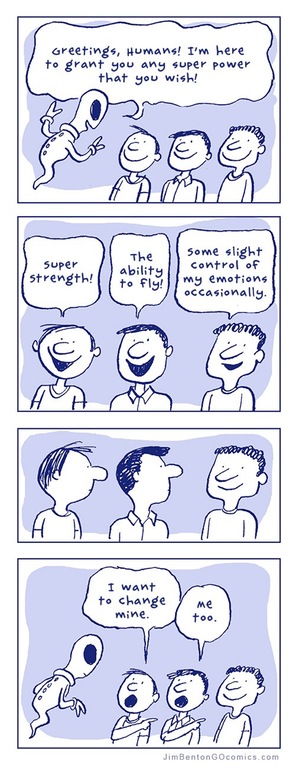Regulating Your Emotions
If you wish to make a man happy, add not to his riches but take away from his desires. — Epicurus
Depending on who you voted for this presidential election, this post may be particularly relevant to you. It builds off another post I wrote four years and a day ago, where I gave some psychological advice regarding the outcome of that election. So, seeing how similar knowledge may be useful here, why not give the people (or at least half of American citizens) what they could really use.

Downregulation, on the other hand (what we’ll be focusing on), is about consciously working to reduce the intensity of an emotion, usually negative ones. For example, your preferred candidate lost the election, so you start focusing on any positives of this outcome (namely, that at least this circus-in-an-oil-fire election is over). When it comes to emotional downregulation, though, there are a number of strategies one can employ–with varying effectiveness.

When we first encounter a negative outcome (say, the latest balance of electoral ballots), research shows we typically begin with rumination (i.e., thinking a lot about the negative event) followed by suppression (i.e., trying to forget or “bury” knowledge of the event).
Rumination is sometime referred to an “outdated” evolutionary strategy, whereby forcing yourself to ruminate on a negative event ensures that you won’t let that event happen again. However—and the election is a good example of this—when the “event” wasn’t really your fault (unless you didn’t vote!), rumination is only going to amplify the negative emotion, rather than provide insight on how to resolve your negative feelings.
Suppression, although better at temporarily blunting your emotions, is not good in the long run, either. A lot of research shows that suppressing negative emotions results in even more negative outcomes. So what should you do?
One of the most effective strategies that psychologists counsel is the act of reappraisal. By reframing how you perceive an event, you can modify the way that event influences your emotions. For example, instead of focusing on all the negatives you predict this next president will bring about, “reframe” the outcome as motivation to get you yourself to counteract the consequences you’re concerned about.
However, reappraisal isn’t a blanket recommendation when experiencing negative emotions. Specifically, you should use reappraisal in events which are beyond your control (like the election). When it comes to controllable events, it can actually be better to endorse those negative emotions.

this one, you’ll be more likely to vote the next time election season comes around.
So, whether your preferred candidate was elected or not, keep in mind our goal in these elections is not to “win” but to move toward improving our society. And to that avail, it doesn’t matter who the President is for you to begin accomplishing that.
Emotionally,
jdt
Everyday Psychology: Think of your own reaction to this presidential reaction. If you were happy with the outcome, what behaviors did you do to enhance that feeling of happiness? If you were disappointed in the outcome, how did you try to minimize your negative emotions? By introspecting on our natural reactions, we can better determine how we can improve our emotional response to future events.
Gross, J. J. (2015). Emotion regulation: Current status and future prospects. Psychological Inquiry, 26(1), 1-26.
Haines, S. J., Gleeson, J., Kuppens, P., Hollenstein, T., Ciarrochi, J., Labuschagne, I., … & Koval, P. (2016). The Wisdom to Know the Difference Strategy-Situation Fit in Emotion Regulation in Daily Life Is Associated With Well-Being. Psychological Science.
Kalokerinos, E., Résibois, M., Verduyn, P., & Kuppens, P. (2016). The Temporal Deployment of Emotion Regulation Strategies during Negative Emotional Episodes. Emotion.







IN LINE WITH ALL THE OTHER ARTICLES, NICE JOB.
EMOTIONS HAVE ALWAYS BEEN THE SEASONING IN LIFE, THEY SHOULD RARELY, IF EVER, BE THE MAIN COURSE.
CONTROL THEM OR YOU WILL BE CONTROLLED BY THEM
Thank you for the kind words! Yes, emotion can certainly bias us toward irrational decision making which can result in negative outcomes; however, there are instances where emotions can lead us to the right choice (such as in motivating us toward compassion for others or finding the courage to stand up for what we believe). But like all things, moderation is usually the key.
Emotions are what makes us humans!!! However, as rightly said moderation is the key. One should not be overwhelmed by emotions neither one should control emotions to extent that it makes one inhuman.
That’s a great point! (and if you watched WestWorld this year, your point would be particularly apt).
I agree with you, emotions ARE what make us human (looking at you Spok), but experiencing them in moderation is key. To banish them entirely makes you a cold calculator of 1’s and 0’s, while having too much emotion makes you a wrecking ball on fire. That said, as my grandma used to say: Everything in moderation–even moderation.